
A dictionary is a listing of lexemes from the lexicon of one or more specific languages, often arranged alphabetically, which may include information on definitions, usage, etymologies, pronunciations, translation, etc. It is a lexicographical reference that shows inter-relationships among the data.
A thesaurus, sometimes called a synonym dictionary or dictionary of synonyms, is a reference work which arranges words by their meanings, sometimes as a hierarchy of broader and narrower terms, sometimes simply as lists of synonyms and antonyms. They are often used by writers to help find the best word to express an idea:
...to find the word, or words, by which [an] idea may be most fitly and aptly expressed

Robert I Estienne, known as Robertus Stephanus in Latin and sometimes referred to as Robert Stephens, was a 16th-century printer in Paris. He was the proprietor of the Estienne print shop after the death of his father Henri Estienne, the founder of the Estienne printing firm. Estienne published and republished many classical texts as well as Greek and Latin translations of the Bible. Known as "Printer to the King" in Latin, Hebrew, and Greek, Estienne's most prominent work was the Thesaurus linguae latinae which is considered to be the foundation of modern Latin lexicography. Additionally, he was the first to print the New Testament divided into standard numbered verses.
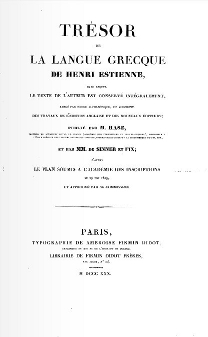
Henri Estienne, also known as Henricus Stephanus, was a French printer and classical scholar. He was the eldest son of Robert Estienne. He was instructed in Latin, Greek, and Hebrew by his father and would eventually take over the Estienne printing firm which his father owned in 1559 when his father died. His most well-known work was the Thesaurus graecae linguae, which was printed in five volumes. The basis of Greek lexicology, no thesaurus would rival that of Estienne's for three hundred years.

Acantha is often claimed to be a minor character in Greek mythology whose metamorphosis was the origin of the Acanthus plant. Acantha's myth however does not appear in any classical source.

Heinrich Wölfflin was a Swiss art historian, esthetician and educator, whose objective classifying principles were influential in the development of formal analysis in art history in the early 20th century. He taught at Basel, Berlin and Munich in the generation that saw German art history's rise to pre-eminence. His three most important books, still consulted, are Renaissance und Barock (1888), Die Klassische Kunst, and Kunstgeschichtliche Grundbegriffe.
Jakov Mikalja, was a Croatian linguist and lexicographer. He was born in the town of Peschici (Apulia), at that time under the Kingdom of Naples. He said about himself to be "an Italian of Slavic language".

The Oxford Latin Dictionary is the standard English lexicon of Classical Latin, compiled from sources written before AD 200. Begun in 1933, it was published in fascicles between 1968 and 1982; a lightly revised second edition was released in 2012.
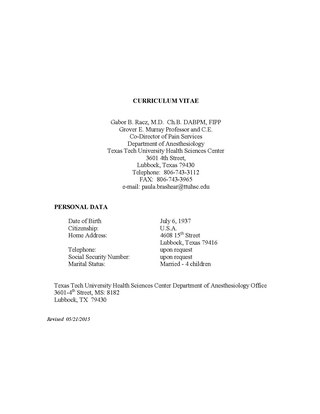
In English, a curriculum vitae is a short written summary of a person's career, qualifications, and education. This is the most common usage in British English. In North America, the term résumé is used, referring to a short career summary.
The Wörterbuch der ägyptischen Sprache, abbreviated Wb in bibliographic references, is a large German-language dictionary of the Egyptian language published between 1926 and 1961 by Adolf Erman and Hermann Grapow. It is a comprehensive work encompassing 3000 years of linguistic history, including Old, Middle, and Late Egyptian as well as hieroglyphic inscriptions of the Classical Greco-Roman period. The dictionary contains approximately 16,000 headwords in five main volumes, two secondary volumes, and five volumes of primary source references. It is therefore the largest and most complete printed dictionary of Ancient Egyptian in existence.
The Thesaurus Linguae Aegyptiae is an online dictionary and text corpus of the Egyptian language developed by the Research Centre for Primary Sources of the Ancient World at the Berlin-Brandenburg Academy of Sciences and Humanities (BBAW) in Berlin, Germany. Intended to be a complete documentation of the Egyptian lexicon, it encompasses varied meanings of words in different texts over 3000 years of linguistic history. The dictionary is entirely based on primary source material, including inscriptions from temple walls, roads, tombs, papyri, and potsherds from religious, legal, administrative, and literary texts. The Thesaurus Linguae Aegyptiae is publicly available on the internet. It is a publication of two academy's projects at the Berlin-Brandenburg Academy of Sciences and Humanities and the Saxon Academy of Sciences and Humanities.
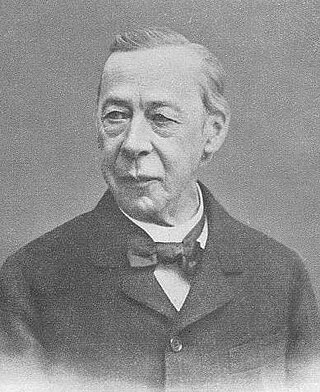
Eduard Wölfflin was a Swiss classical philologist. He was the father of art historian Heinrich Wölfflin.
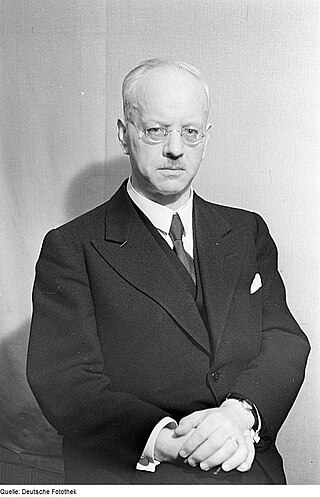
Johannes Stroux was a German classicist, scholar of Roman law and organizer of scientific projects and organizations. In 1945 he became rector of the Berlin University and president of the Berlin Academy of Science.
Mittellateinisches Wörterbuch is a project for the edition of a comprehensive Medieval Latin dictionary, organised by a committee of the Bavarian Academy of Sciences and Humanities and published with C. H. Beck.
Thomas Wiliems was a Welsh-language antiquarian.
A historical dictionary or dictionary on historical principles is a dictionary which deals not only with the latterday meanings of words but also the historical development of their forms and meanings. It may also describe the vocabulary of an earlier stage of a language's development without covering present-day usage at all. A historical dictionary is primarily of interest to scholars of language, but may also be used as a general dictionary.
Abbreviations for classical authors and texts are abbreviations used to refer to ancient authors and their works that are used in academic publications in the field of classical studies. Two systems are in common use, based on the abbreviations lists of standard reference works:
Ernst Vogt was a German classical philologist. He was a professor at the Universities of Mannheim (1967–1975) and Munich (1975–1999). Between 2002 and 2014 he served president of the International Thesaurus Commission.
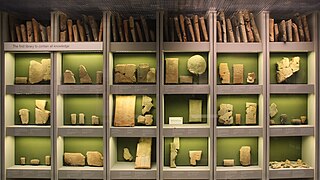
Ancient text corpora are the entire collection of texts from the period of ancient history, defined in this article as the period from the beginning of writing up to 300 AD. These corpora are important for the study of literature, history, linguistics, and other fields, and are a fundamental component of the world's cultural heritage.

Hans Julius Wolff was a German legal historian and jurist. He specialized in and was a renowned figure on Roman and Greek law.











